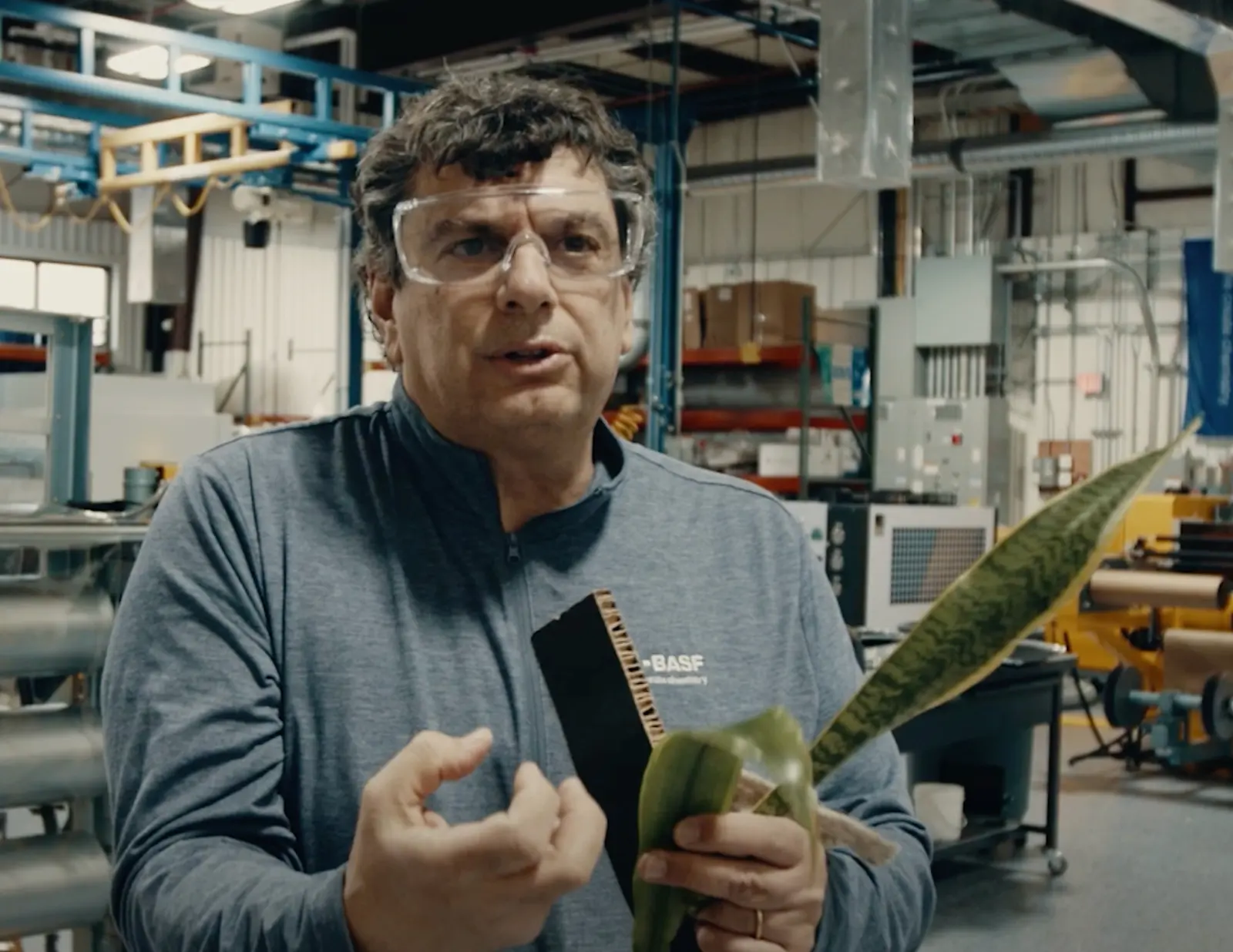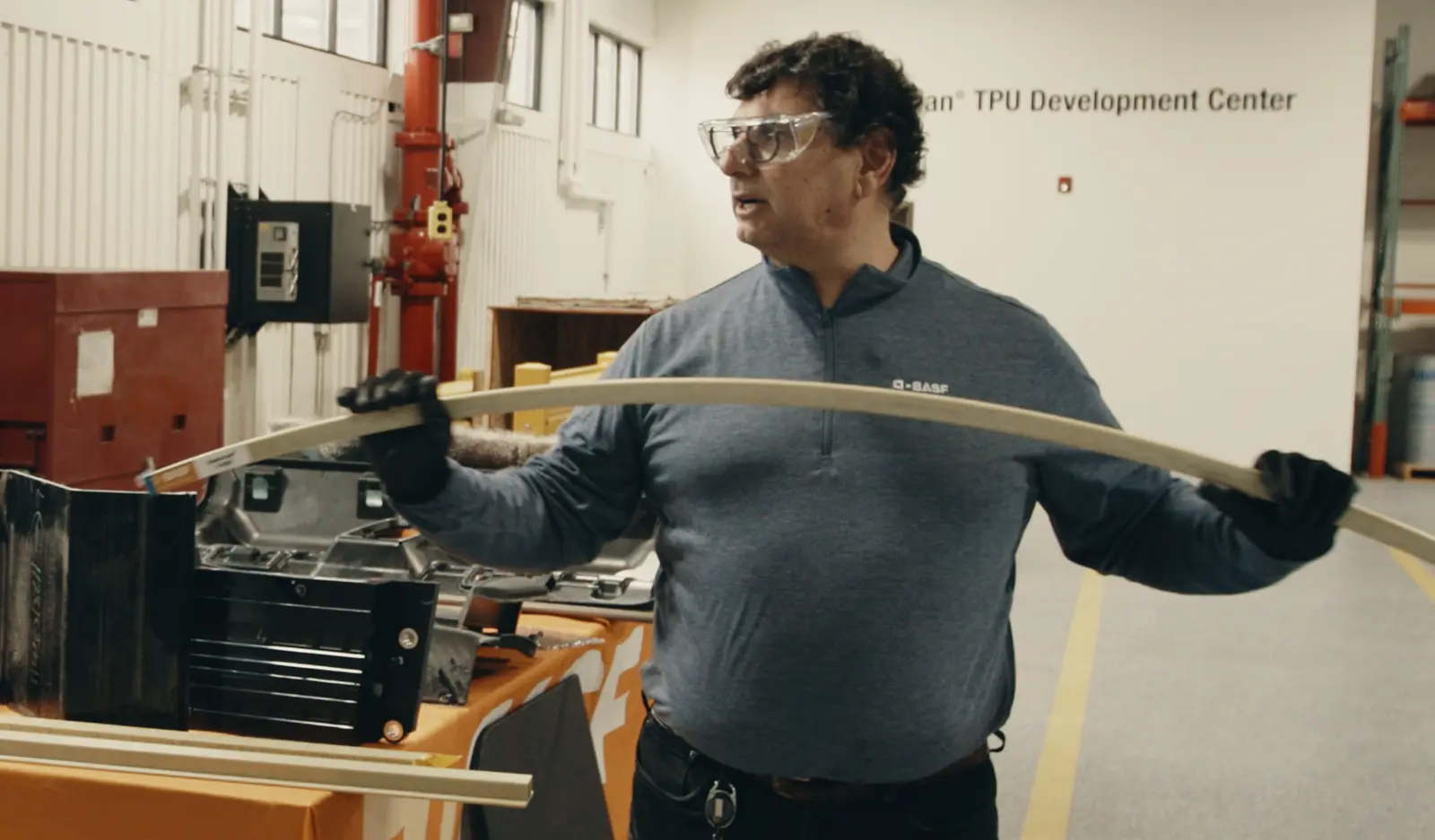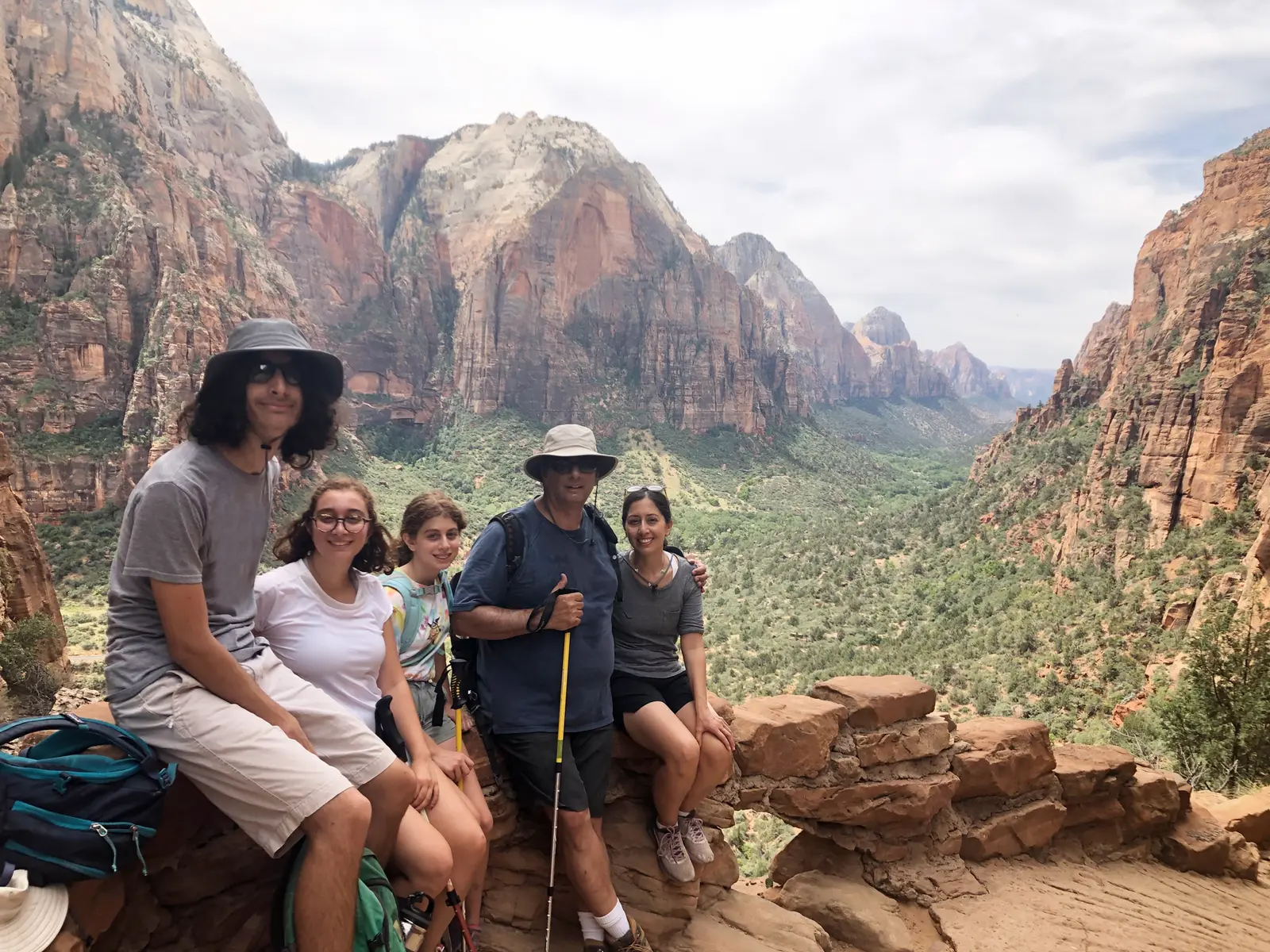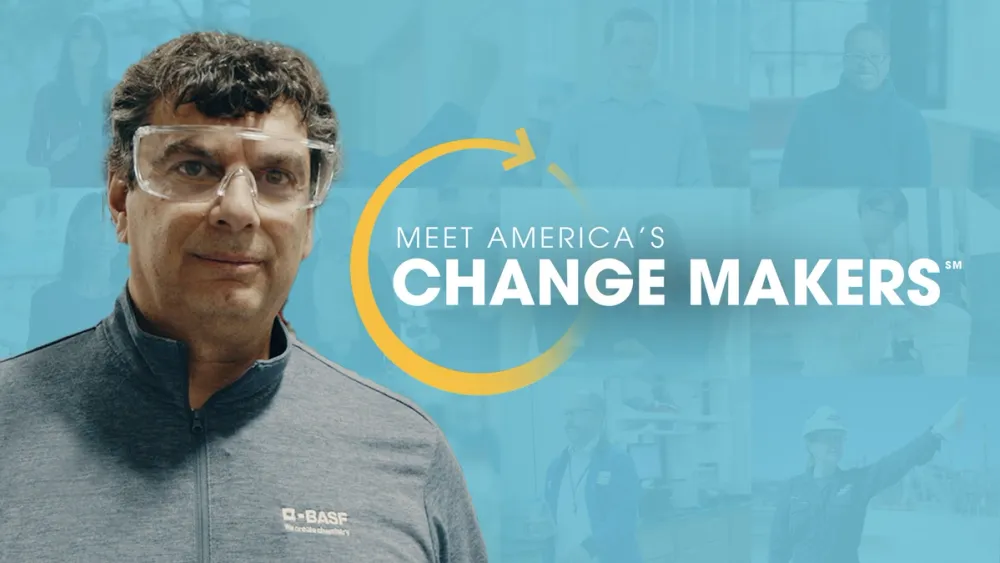Elias is fascinated with nature.
When studying for his material sciences degree at Michigan State University, he fell in love with a remarkable creation of nature: composites.
“Nature gives us a lot of information. All those leaves we have, they’re composites. They have fiber in them that makes them so strong. You can’t even cut them with your hands, and yet they’re so light.”

After three decades and nine patents, he continues to draw his inspiration from nature.
“I always like to work with what nature is giving us to make products that human beings can benefit from. I’ve been in this field for 30 years, and we really develop technology out of nature.”
What does he do with this information and inspiration? He makes lightweight, strong composites for our cars and trucks. Composites that help reduce the weight of our vehicles while improving safety. Materials that create a matrix of plastics and fibers. Mimicking nature.
As Technology Leader for Composite Technologies at BASF, he’s translating lessons gleaned from our planet to help our cars and trucks run more efficiently and reduce emissions, leaving a lighter environmental footprint.
Meet Elias. One of America’s Change Makers
Lightweight car parts lead to savings at the gas pump. According to the U.S. Department of Energy: “A 10% reduction in vehicle weight can result in a 6% – 8% fuel economy improvement.”
“We make the composite much lighter than typical alternatives, which gives us better performance and more fuel economy and gets us into a better, more sustainable future. I have products that I made that are stronger than high-strength steel, and they’re one-fourth the weight. So eventually I’m saving on gas because lighter means I don’t need to have a bigger engine.”

In composites technologies, he says that the aerospace industry is ahead of the auto industry.
“You’ve heard about the Dreamliner, which is all composite carbon fiber. The aerospace industry learned faster than us. They use composites for lighter weight and for strength that even beats steel and aluminum. We’re borrowing some technologies from them for automobiles.”
He’s worked with multiple types of fibers and plastics, looking for the right mix of strength and weight savings. And he continues inventing.
“When I started, we started with just simple composites. I think my responsibility in the field of composites is to keep innovating, to look into the next iteration of innovation that can benefit us in terms of sustainability.
More and more, carmakers are demanding sustainable materials. The future of plastic composites will be to use more natural fibers, and that will be the best future because I’m using something from nature and bringing it back to nature. That’s where we’re trying to innovate.”
The worldwide drive toward electric vehicles is fueling the need for even lighter car parts.
“You think about the cars going electric, batteries are heavy. So somewhere you have to save weight, and that will come from the materials. So I think there is a better future for composites when we go to electric cars.”
Elias says his kids also have developed a deep appreciation for nature and sustainability.
“So we have three kids. And that’s why I have gray hair. Our kids grew up with an appreciation of nature. On any vacation, we try to go to a national park to enjoy nature. Even when we go to the supermarket, we look into how we can minimize buying things that are not recyclable or sustainable. Our duty is to maintain that nature.”

And for him, the desire to innovate is all about sustainability. It’s just in his nature.
“In my career, sustainability is goal number one. Even before the buzzword of sustainability was there. As I always say, this planet is not mine. It’s for my kids and others.”
We wish Elias and his team continued success.


